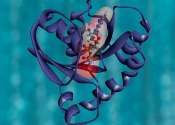Secrets revealed about how disease-causing DNA mutations occur
A team of Penn State scientists has shed light on the processes that lead to certain human DNA mutations that are implicated in hundreds of inherited diseases such as tuberous sclerosis and neurofibromatosis type 1. The ...








